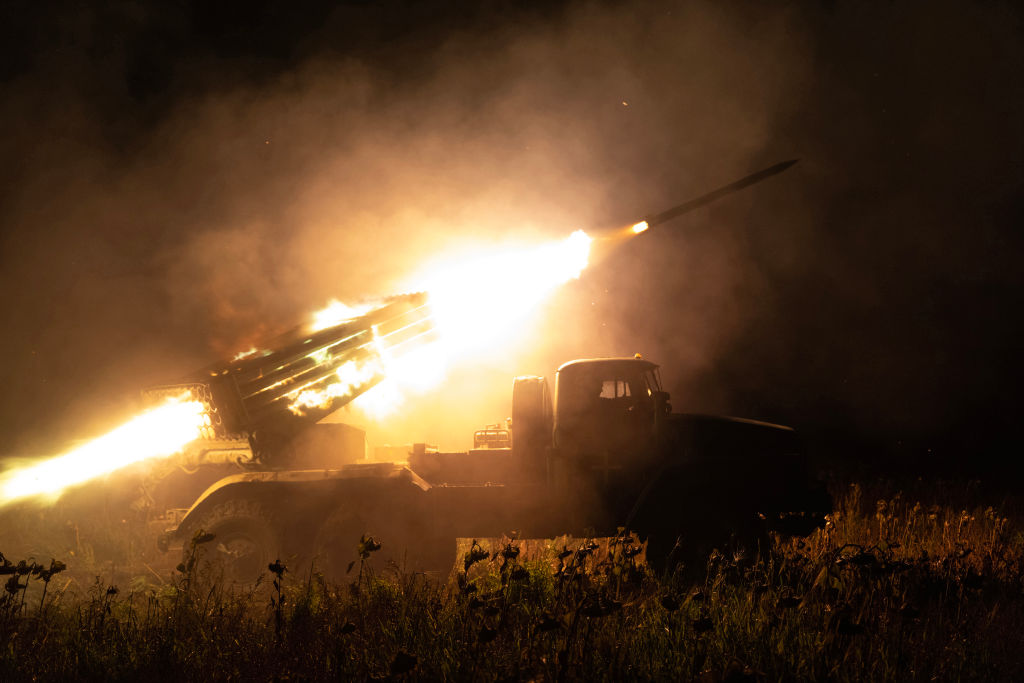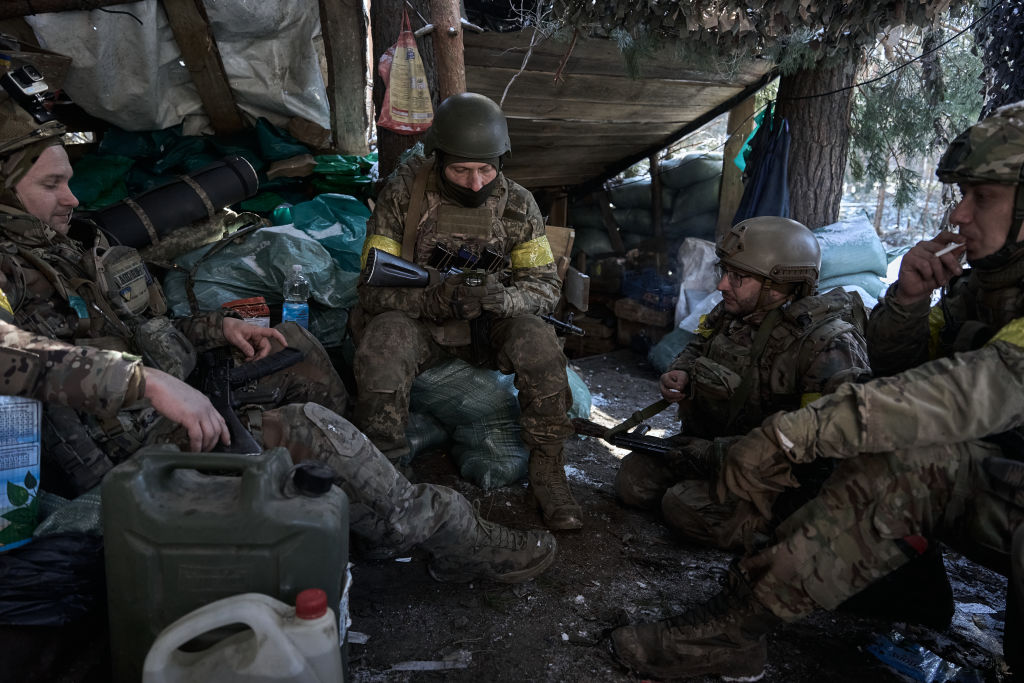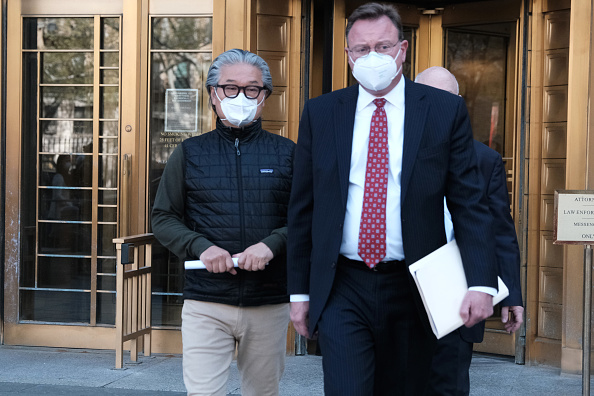Western Europe could quite properly see the Ukraine war as it now stands as a great opportunity. In the United States, Donald Trump remains the election favourite, and he is rightly confident that he could successfully propose to Russian President Putin the acquisition of several Ukrainian provinces in exchange for the unconditional and permanent acceptance of the complete sovereignty of Ukraine in its revised borders, and could then sell this to the Ukrainian government as the best that can practically be done and in effect four-fifths of the loaf.
Of secure nationhood. Putin could limp back to the Kremlin claiming some sort of accretion of territory and Ukrainian president Zelensky would be the George Washington of Ukraine and would have established that country unambiguously on the European map for the first time in all of its long and tormented history. If Vice President Harris is elected president, it appears that she will continue with the Biden policy of fighting the war to the last Ukrainian and only gradually escalating Ukraine’s ability to respond proportionately to Russia’s torrent of missiles upon Ukrainian civilian areas with near impunity.
But whatever happens in the American election, Europe possesses the ability to provide adequate reinforcement and supply of the Ukrainian war effort even with a somewhat reduced contribution from the United States. It is obvious from the latest Russian draft calls, and the inability of Russia to expel Ukraine from its territory in its current incursion into Russia, that the Kremlin is in no position of strength. It seems to have taken over 350,000 casualties and has conspicuously failed to impress the world with its rank inability to subdue a much smaller country.
As usual, when there is any discussion of enabling Ukraine to reply to Russian aggression with equivalent potential damage to civilian targets well within Russia’s borders, the Kremlin resorts to its rather tired nuclear sabre-rattling. French President Macron aptly stated some weeks ago that France, too, is a nuclear power.
This recourse to threats of the use of nuclear weapons by Putin is another manifestation of weakness. All the nuclear powers had got out of the habit of threatening the use of these weapons well before the end of the Cold War. At the height of that impasse in the late 1950s, Soviet leader Nikita Khrushchev told US President Dwight D. Eisenhower that, “We could easily defeat you with conventional weapons in Berlin.” President Eisenhower replied: “If you attack us in Germany, there will be nothing conventional about our reply.”
It is about time that somebody with adequate authority publicly explained to Putin that the use of nuclear weapons by him will receive a proportionate nuclear response. This is an utterly hollow threat by the Kremlin, induced by its well-earned embarrassment at a war which was supposed to last six weeks and has been an almost complete fiasco that has virtually reduced Russia, one of the world’s great powers since the time of Peter the Great 300 years ago, to a quasi-satellite of the totalitarian regime of the People’s Republic of China.
Russia today is not led by ideologues pursuing a cause that they seriously imagine to have any potential of universal acceptance and success. It is led by a man who has the understandable ambition of trying to restore some of Russia’s prestige and influence and recover significant parts of territory that seceded from the late Soviet Union when it lost the Cold War. Putin already exercises preeminent influence in Belarus and apparently also in Kazakhstan and now Georgia. But the largest piece of the former Soviet Union and, next to Russia itself, the largest component of that country and of the Czarist Empire that preceded it is Ukraine.
If Russia were successful in reintegrating Ukraine into the Russian state, Putin would have succeeded in substantially unwinding the great and bloodless Western victory in the Cold War. He would also have exposed the Western Alliance as a paper tiger, which it certainly has not been in this war up to now. Both of these outcomes, were they permitted to occur, would be a disaster for the West.
But both are easy to prevent; the current Russian leaders are not ideologues at all. They are a bunch of oligarchic billionaire cronies of the president living in Oriental opulence that would incite the envy of the Romanoffs. The last thing in their avaricious imaginations they would wish is a nuclear war.
This is now a war whose time to end has come, and Putin has repeatedly signalled that he will happily end it with some sort of face-saving formula. That is available; Ukraine never existed as a functioning and coherent country until the disintegration of the Soviet Union 33 years ago, and it has essentially been a failed state since then, until this war. The heroism of the Ukrainian people in this crisis and the leadership provided by Zelensky have given Ukraine an authentic heroic relaunch as a country. It has certainly earned the respect and the solidarity of the West, which it wishes to join. Ukraine has demonstrated a formidable military prowess and would be a brilliant addition to NATO, and any end of this war must include imparting to the Kremlin the news that NATO will decide who joins NATO and not anybody else. A settlement must include a universal European and NATO guarantee of Ukraine’s new borders, the right to enter the EU and NATO for Ukraine when it meets the normal criteria, and could also include a nonaggression pact between Russia and NATO.
This war will again significantly alter, in the West’s favour, the correlation of forces in Europe and these are all outcomes that Europe can advance without waiting upon the electoral vagaries of the United States. It was only 25 years ago that the then-president of the Council of the EU (Jacques Poos of Luxembourg) triumphantly announced that the shambles in the late Yugoslavia was “the hour of Europe,” two weeks before urgently asking for the assistance of the United States. This could be the hour of Europe if Europe seriously wishes to make it so.





To get his eco-friendly combat vehicles ready for a fight, Scholz will have to pay billions